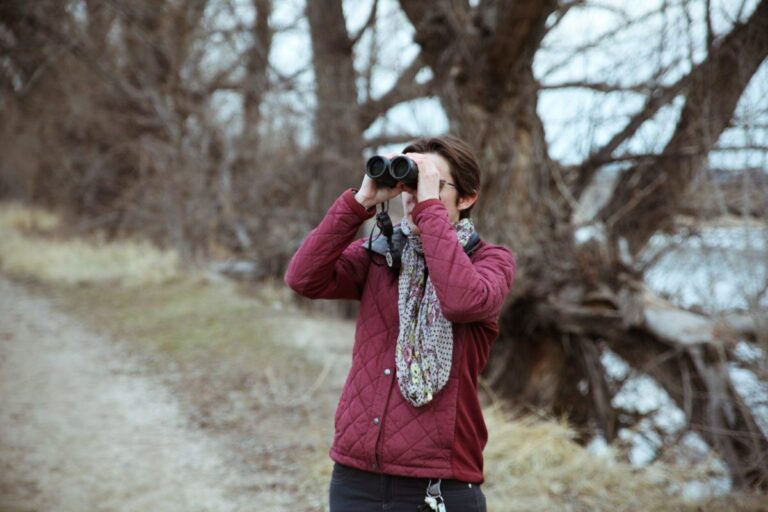A Birder’s Guide to Our Equity Journey

At Propel Nonprofits, one of our guiding principles is to advance justice. We are living out our commitment to justice with an intentional focus on building our intercultural and leadership capacities; we’re learning to look at our work and look at ourselves differently.
“In a surprising number of ways, the skills and techniques that birders practice are useful tools for us in our diversity, equity, and inclusion work.”
Maureen Ramirez
We’re using the developmental framework of the Intercultural Development Inventory (IDI) to assess our capability to shift cultural perspective. This means that we’re learning a new language to describe what intercultural dynamics are in motion in our daily lives. We’re practicing noticing how systemic racism and white supremacy culture show up in our own work culture. We’re engaging at an individual, team, and organization level to learn and practice the skills to adapt and shift our behavior. And because it feels abstract to say we are “doing the work of building intercultural capacity,” I’ve found it helpful to use my own lived experience shifting from a hiker to a birder (yes, a person who looks for birds) as a metaphor for this work.
In a surprising number of ways, the skills and techniques that birders practice are useful tools for us in our diversity, equity, and inclusion work. Similar to myself before becoming a birder, I would say Propel was more inclined toward hiking – embarking on long, vigorous walks, often through rugged terrain, and with a goal that involved a distance covered. I would argue this is the orientation of many nonprofits: three-year strategic plans with outcomes, outputs, and maybe an overall theory of change with an accompanying infographic that’s shaped like a mountain! You can see the ground you want to cover, but it’s easy to miss the larger environment that you’re operating in.
Hiking used to be my preferred mode of being outdoors. I wanted to hike to see how far (and how fast!) I could go. I had many years of practice at hiking. I didn’t have to think very hard about it. It was easy. For folks in dominant cultures, this may be their norm.
Then I met – and eventually married – a birder. While he still liked to be outdoors and find rugged trails, he moved slowly. He carried specialized equipment. He thought about the position of the sun, the direction of the wind, and the habitat around us. He was precise about our surroundings: we were in an oak savannah, not just a grassland.
I learned that a birder has a different focus than a hiker – a different focus that requires different actions. A birder looks up and around; I was used to looking ahead. A birder is focused on the environment; as a hiker, I’d been focused on the destination. At Propel, we’re doing the same work of shifting our behaviors by shifting what we’re looking at. Through our individual work plans, team goal-setting, and all-staff gatherings, we’re noticing what systems and structures are in motion around us. We’re practicing naming and noticing, as well as trying things out.
There are times we feel uncomfortable with how slow it seems we’re going or with hard yet honest conversations. We feel that discomfort in our bodies when we pause to consider the “differences that make a difference” – how we handle conflict, how we perceive and hold power, how we shape our work culture and form relationships. But the encouraging thing is that just as I learned to be a birder, we’re collectively learning to change our behavior and orientation to our work and to each other.
Just as I practiced my new approach to the outdoors simply by going outdoors and looking up instead of looking ahead, the same holds true for our work at Propel. Our sessions working with Listen to Lead help, as do the articles and workshops, but the most helpful tool is learning by doing. We know mistakes will be made (and we’ve already learned from a few), the discomfort will continue, and the pace will sometimes feel too slow for some and too fast for others. But, we’ve all committed to making the journey.
My favorite park in Dakota County has a trail that is about two miles long. I’m happiest spending about three hours in the park. I am definitely not hiking. I’m moving slowly, noticing what’s all around me, taking in more information. As a sector that is largely in the business of creating more equitable communities, I urge us all to adopt a bit of a birder’s mindset: What do you notice? What do you wonder? It’s okay if that means slowing down, getting new tools, and above all, making friends with other birders.

